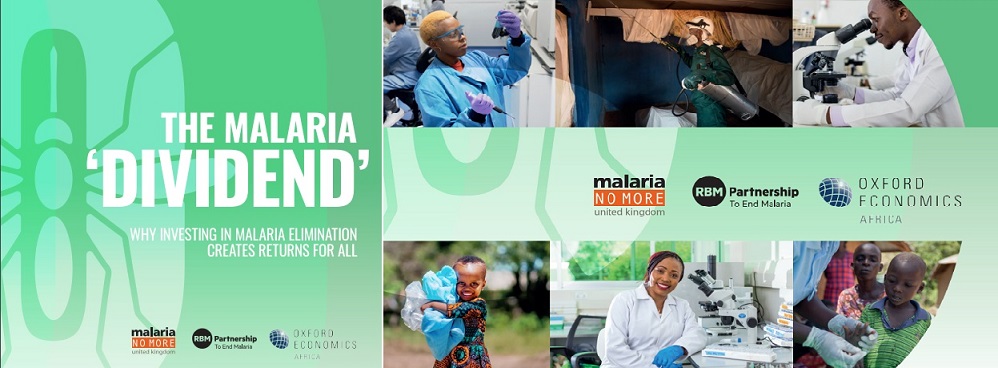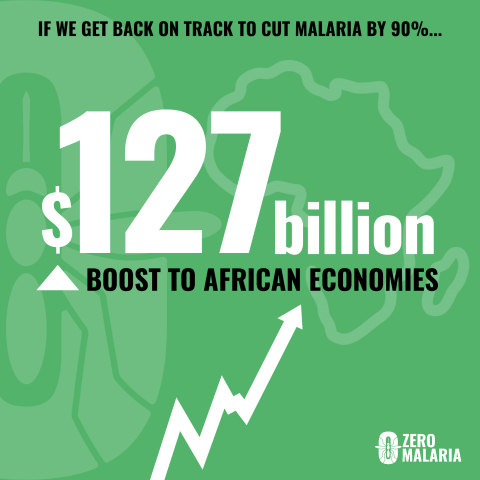New research from Oxford Economics Africa, commissioned by RBM partner Malaria No More UK, reveals that getting back on track for the Sustainable Development Goal target on malaria would significantly bolster African economies and increase global trade.
Achieving the target of reducing malaria by 90% from 2015 levels by 2030 could increase African GDP by $126.9 billion cumulatively between 2023 and 2030, averaging an annual boost of nearly $16 billion, larger than Niger’s entire economy today.
Additionally, the research highlights a potential $31 billion rise in exports from malaria-endemic countries in Africa. This export growth includes nearly $4 billion for G7 countries, $1.5 billion for the US, and $450 million for the UK. These figures underscore the importance of continued investment from G7 nations in malaria eradication efforts.
Malaria currently claims over 600,000 lives annually. The World Health Organization estimates that malaria interventions have prevented 2.1 billion cases and 11.7 million deaths from 2000 to 2022. While children account for three-quarters of global malaria deaths, the disease also significantly impacts the working-age population, leading to employee absenteeism, reduced income, and increased healthcare costs. Furthermore, children suffering from malaria often miss school, hindering their education and future economic contribution, while placing additional burdens on healthcare systems and families.
Nigeria, Kenya, and Angola are among the countries expected to benefit the most, with potential economic boosts of $35 billion, $9 billion, and $8.5 billion, respectively, by 2030. These economic gains could be reinvested in strengthening health sectors, enhancing diagnostic capacities, healthcare workforces, and primary healthcare infrastructure. Such improvements would better prepare these countries and the world against future health threats, including pandemics, benefiting global health security.
This analysis comes ahead of the G7 leaders’ summit taking place in Italy in mid-June. Working in partnership with endemic countries, G7 states have played a vital role in the establishment of global health initiatives like Gavi, the Vaccine Alliance, and The Global Fund to Fight AIDS, Tuberculosis, and Malaria. These institutions provide significant funds to the malaria fight and are important to getting back on track to its 2030 goals. With both initiatives due for replenishment in the next 18 months, and G7 leaders due to hold an important dialogue with African leaders at this years’ leadership summit, this report is a timely reminder that investment in malaria elimination can deliver collective benefit. The report also underscores the importance of delivering on the domestic resource mobilisation pledges made by endemic country leaders, and highlights the importance of the their political will as shown in the recently agreed Yaoundé declaration.
Despite being off track for the global malaria reduction target, the availability of new tools, like vaccines and ‘next generation’ bed nets, means the target could still be met through concerted efforts. Ensuring sufficient resource from both domestic and international sources, including through Gavi and The Global Fund, will be critical to this.



